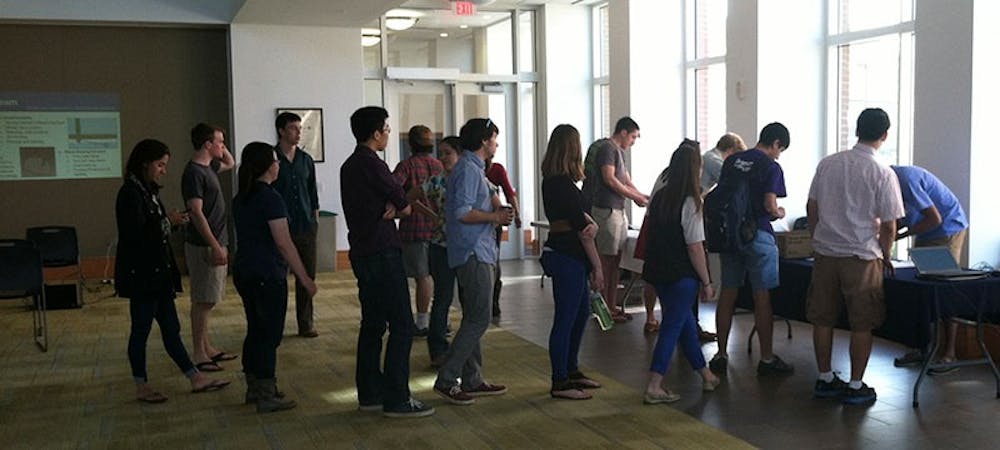Engineering Students Without Borders, a student-run organization focused on applying sustainable engineering methods to carry out local and international development projects, held a project symposium Tuesday to present their projects to the University community.
“Our mission is twofold: to inspire students to be proactive and contextually aware engineers, and to empower communities to attain their basic human needs in a sustainable manner,” said third-year Engineering student Yiqi Cao, the outgoing vice president and incoming academic chair for ESWB.
ESWB aims to produce long-term development solutions, and said they believe lasting change starts at the community level. The group was founded 10 years ago, but it has undergone significant revamping in past three years, giving students more hands-on opportunities they need to apply engineering skills learned in class and to make a tangible impact on communities both near and far, Cao said.
“It’s been amazing to see how the organization has grown and evolved, as ESWB currently connects and mentors 10 student teams in carrying out projects in the local Charlottesville community and abroad,” she said.
Locally, ESWB have worked with the Living Energy Farm and the University Community Gardens.
With the Living Energy Farm, their goal is to create a biogas digester, which would ideally provide fuel to power a stove used to feed 12 individuals. The project is projected to cost anywhere from $5,000 to $10,000.
Because of the project’s high cost, time and expertise demands, the team set short-term goals, planning to research and create a small-scale prototype that will best serve the needs of the Living Energy Farm.
One of the ongoing international projects is the Nicaragua Project, which aims to improve the water system in rural Nicaraguan regions, gathering students from across the Engineering School and one from the Global Development Studies. This coming summer will be the fourth year in a row the project has been working with Bridges to Community, a non-governmental organization.
The Wheelchair Ramps Project, spearheaded by first-year Engineering students Katelyn Ditzler and Michael Buhl, is a local project that has partnered with the Albemarle Housing Improvement Project. The team has built several wheelchair ramps for low-income patients who are released from the University hospital. The patients served still have issues getting into their homes without injury due to stairs at the entrances of their houses.







